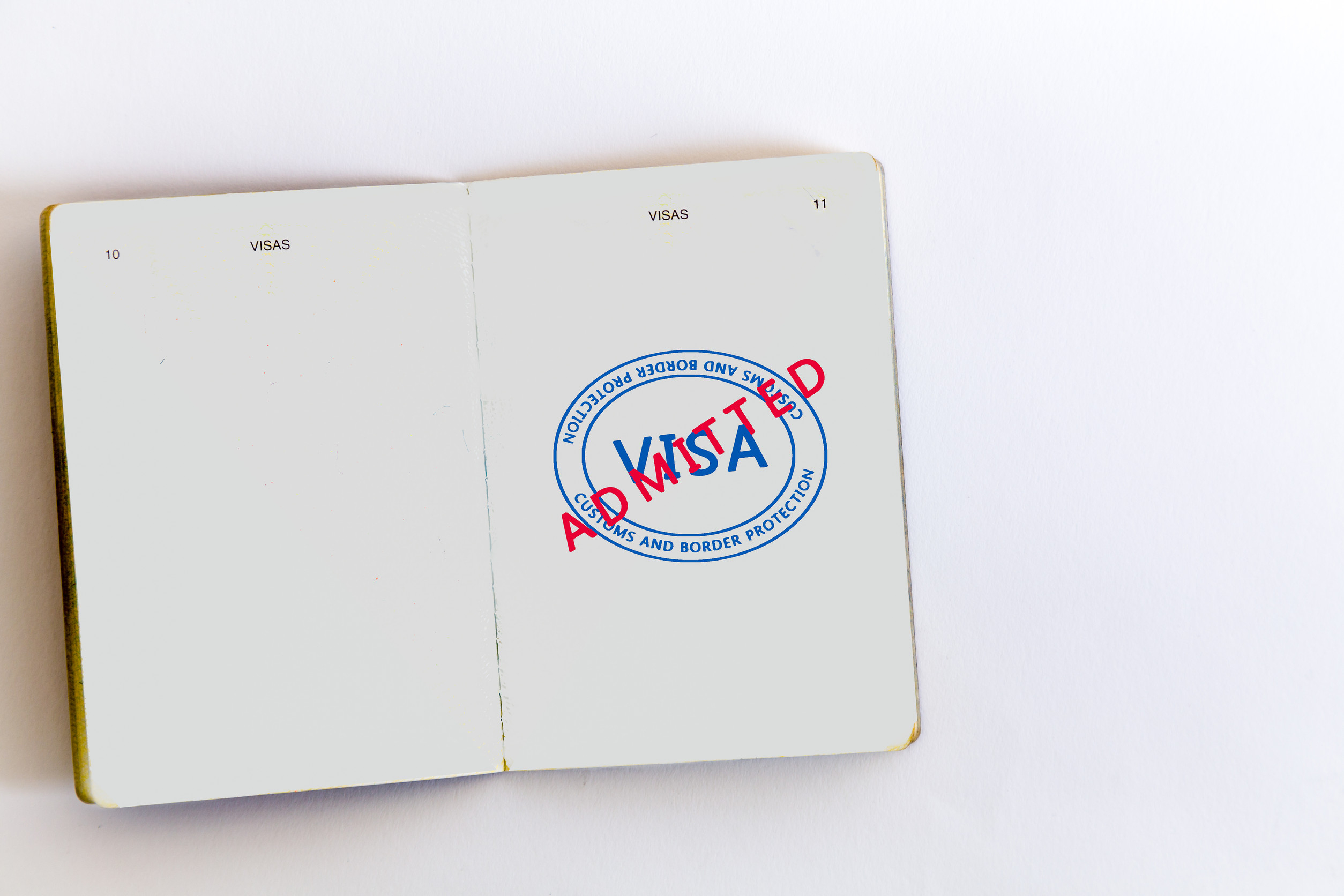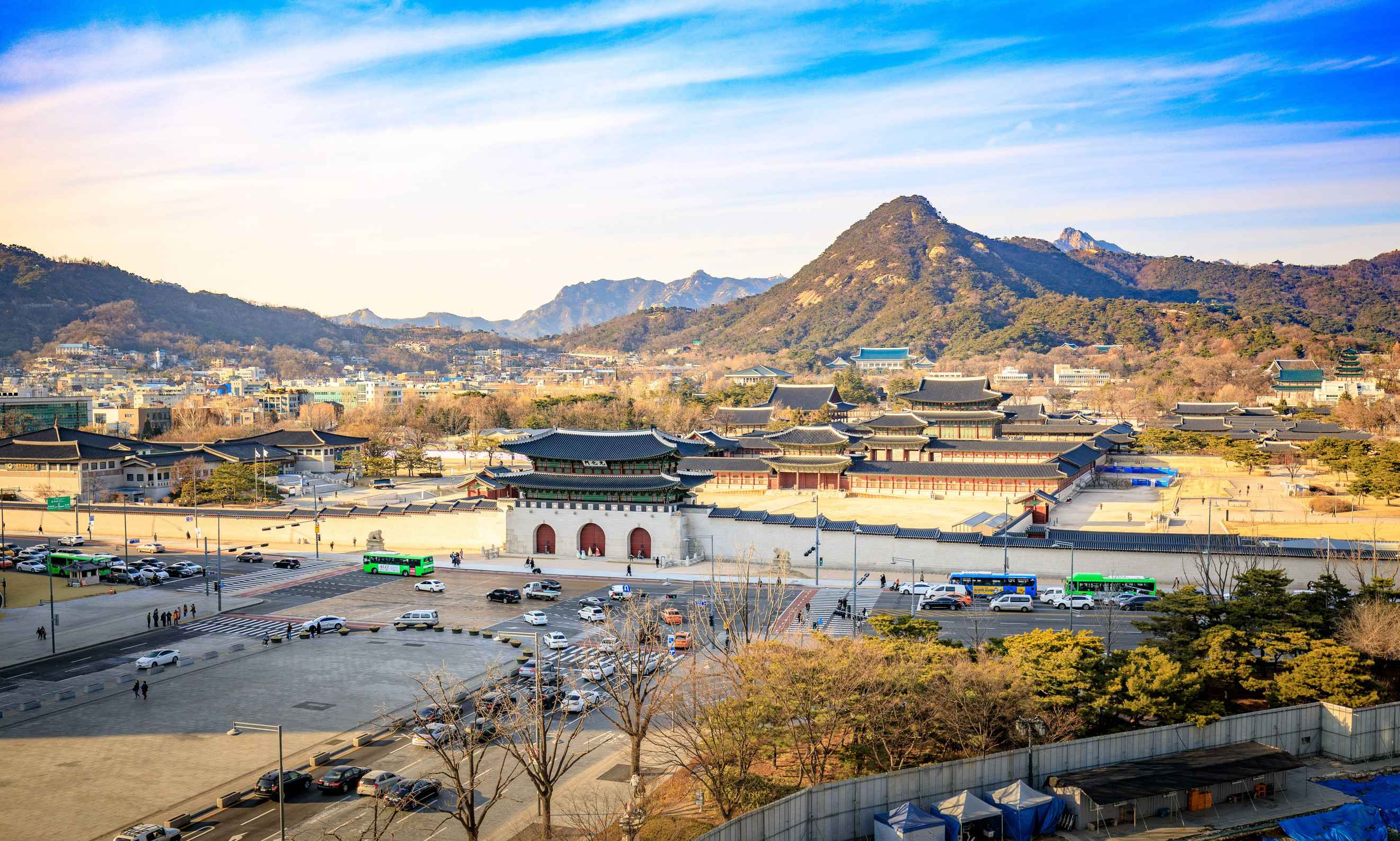To apply for a South Korea evisa, eligible travelers need to provide their personal and travel information, as well as supporting documents, through an online visa application platform. The processing time for a South Korea evisa is usually much faster than a traditional visa, and the evisa can be used to enter South Korea for short stays, such as tourism, business, or transit.
Eligibility for a South Korea evisa depends on a variety of factors, including the applicant's nationality, the purpose of the trip, and the length of stay in South Korea. It is important to check the latest South Korea evisa requirements and eligibility criteria before applying.
South Korea visa requirements change depending on the type of visa you need as well as the country in which you are applying. However, the standard set of documents everyone has to submit includes:
To apply for a South Korean eVisa, you need:
- A passport with at least 6 months validity remaining
- A passport-sized photo
- Flight itinerary
- Hotel reservation or proof of accommodation
- Proof of financial means (e.g. bank statement)
- Purpose of visit (e.g. business, tourism)
- Completed online application form
Note: Additional documents may be required based on the purpose of visit and individual circumstances.
- Passport : A passport is a document issued by a government that certifies the identity and nationality of an individual for the purpose of international travel. It usually contains the holder's personal information, photo, and signature. A valid passport is required to travel to most countries, including South Korea, and it must have at least 6 months of validity remaining.
- Passport-size picture(s) : A passport-size photo is a small, 2-inch by 2-inch headshot used for passport and visa applications.
It must meet specific requirements, such as:

- Recent photo (taken within the last 6 months
- Clear and in focus
- Full face and head should be visible and center
- Plain white or off-white background
- Proper lighting (neither too dark nor too bright)
- It is important that the photo accurately resembles the applicant, as it will be used for official identification purposes.
- Return or onward flight ticket: A return or onward flight ticket refers to a document that confirms a person's reservation on a flight from their destination back to their original departure location or to a different destination. It is a requirement for many countries, including South Korea, as it shows proof of the traveler's intent to leave the country after their visit. The ticket may be a physical document or an electronic version. Airlines and travel agencies can provide this document upon booking a flight.
- Proof of sufficient funds : refers to documentation that shows an individual has access to enough money to cover their expenses during their stay in a foreign country. This is required by many countries, including South Korea, to ensure that visitors are not a burden on the local economy and are able to support themselves during their stay.
Common forms of proof of funds include:
- Bank statements
- Pay stubs
- Income tax returns
- Credit card statements
- Proof of accommodation in South Korea : Proof of accommodation refers to documentation that confirms an individual has made arrangements for a place to stay during their visit to South Korea. This is a requirement for many countries, including South Korea, to ensure that visitors have a stable place to stay during their trip.
Proof of accommodation can be in the form of:
- Hotel reservation
- Booking confirmation from a vacation rental service (e.g. Airbnb)
- A letter of invitation from a host in South Korea, including contact information and a guarantee of financial support for the duration of the stay.
It is important to note that proof of accommodation may be required for the entire duration of the stay, or for a certain number of nights, and the specific requirements may vary based on individual circumstances and the purpose of visit.
- Payment of the South Korea evisa fee : The payment of the South Korean eVisa fee is a requirement for processing the eVisa application. The fee is a non-refundable charge that covers the cost of processing the application and is separate from the cost of travel and accommodation. The fee amount may vary depending on the type of visa and the applicant's individual circumstances, such as the length of stay and number of entries. The payment can be made online using a credit or debit card, and it is advisable to check with the local embassy or consulate for the most up-to-date information on the fee amount and payment options.
- For South Korea Student Visa: To apply for a South Korean student visa, you will typically need the following documents:
- A passport with at least 6 months validity remaining
- A passport-sized photo
- Proof of enrolment or acceptance letter from a South Korean educational institution
- Financial means to support your studies and stay in South Korea (e.g. bank statement)
- Health insurance coverage
- Completed visa application form through embassy
- Additional documents may be required, such as a language proficiency test score or proof of previous academic record.
Note: Requirements may vary based on individual circumstances and the embassy or consulate where you apply, so it is advisable to check with the local embassy or consulate for the most up-to-date information.
-
South Korea Business eVisa: To apply for a South Korean business visa, you will typically need the following documents:
- Invitation letter from a South Korean company
- Proof of business ties between the applicant and the inviting company
- Proof of financial means to support your stay in South Korea (e.g. bank statement)
- Completed online visa application form
Additional documents may be required, such as a certificate of incorporation, trade license, or business plan.
-
For South Korea Work Visa: Employment contract : An employment contract is one of the required documents for a South Korean work visa.
The employment contract should include the following information:
- Names of both the employer and employee
- Description of the job duties and responsibilities
- Start and end date of the contract
- Salary and benefits
- Working hours and leave entitlements
- Any other terms and conditions of the employment
The employment contract is important for demonstrating the applicant's employment status and purpose of stay in South Korea, and is used to support the work visa application. Other required documents for a South Korean work visa may include:
- Proof of financial means to support your stay in South Korea (e.g. bank statement)
- Health insurance coverage
- Note : Any other additional document depending on the purpose of your visit
South Korea eVisa Application Form
The South Korean eVisa application form is an electronic form that applicants must complete and submit to apply for a South Korean eVisa.
The form will typically require the following information:
Personal information: full name, date of birth, place of birth, nationality, passport number, etc.
- Contact information: name, email address, mailing address
- Travel information: details of entry, exit and purpose of visit.
- Health information: any medical condition you have (past or present)
- Background information: criminal background, travel history etc.
Note : It is important to complete the eVisa application form accurately and truthfully, as any incorrect or false information may result in the application being denied. Once the form is submitted, along with the required supporting documents and payment of the eVisa fee, processing of the application will begin.
How to apply for a South Korea eVisa?
To apply for a South Korean visa, you can follow these steps:
Determine the type of visa you need: There are various types of South Korean visas, including tourist visas, business visas, and more. You will need to determine which type of visa is best for your specific purpose of travel and circumstances.
Gather the required documents: Each type of visa may have different requirements, but common documents include a passport with at least 6 months validity remaining, a passport-sized photo, and proof of financial means to support your stay. Other documents may include an invitation letter, proof of enrolment, employment contract, etc.
Complete the online visa application form: You will need to complete the online South Korean visa application form, providing information such as your personal details, travel plans, and any relevant background information.
Pay the visa fee: The visa fee is a non-refundable charge that covers the cost of processing the application. Payment can be made online using a credit or debit card.
Submit the application and supporting documents: Once you have completed the online visa application form and paid the visa fee, you will need to submit the application along with the required supporting documents.
Wait for processing: Once the eVisa application has been submitted, the applicant can check the status of their application online using the reference number provided at the time of application. If the eVisa is approved, the applicant will receive an email with a copy of the eVisa, which should be printed and carried with them when traveling to South Korea.
If a sponsor will submit the South Korea evisa application for you
If a sponsor is submitting a South Korean eVisa application on your behalf, they will need to provide the following information and documents:
Your personal information
full name, date of birth, place of birth, nationality, passport number, etc.
Your contact information
email address, phone number, mailing address
Your travel information
dates of entry and exit, purpose of visit, etc.
Health information
any previous or current medical conditions
Background information
criminal record, previous travel history, etc.
In addition, the sponsor may also be required to provide proof of their financial means to support your stay in South Korea and a letter of invitation or sponsorship.
What is the duration of a South Korea visa?
The duration of a South Korean eVisa depends on the type of visa you are applying for and the purpose of your visit. In general, tourist visas and business visas are issued for a maximum of 90 days, while work visas can be issued for a duration of up to 1 year or more, depending on the individual circumstances and the nature of the work.
Extending a South Korea Visa

You can apply to extend your South Korean visa if you want to stay in the country for a longer period of time than your initial visa allows. To extend your visa, you will need to apply at a local immigration office before the expiration of your current visa.
To apply for an extension, you will need to provide the following documents:
- Your passport
- Your current visa
- A completed application form
- Proof of sufficient financial means to support your stay in South Korea
- Documentation supporting the reason for your extension (e.g. an employment contract if you are extending a work visa)
The processing time for a visa extension can vary, so it is advisable to apply as early as possible and to check with the local immigration office for the most up-to-date information on processing times.
Note: Approval of a visa extension is not guaranteed, and the final decision will be made by the immigration authorities.
Special visa requirements for Jeju-do region
Jeju-do, also known as Jeju Island, is a special autonomous province in South Korea that has its own set of visa requirements. Visitors to Jeju-do may be required to provide additional documents or information beyond what is required for a standard South Korean visa
Some of the specific requirements for visitors to Jeju-do include:
- Proof of accommodation in Jeju-do
- Proof of sufficient funds to cover the duration of your stay in Jeju-do
- A completed "Jeju Entry Declaration Form"
- A valid return or onward flight ticket
- Travel directly to the Jeju International Airport or use the passenger terminal.
- Remember that the region of Jeju-do is a popular tourist destination.
- Only stay up to 30 days
Frequently asked questions
Yes. Passengers traveling to certain countries must submit a negative PCR test result before they can board their flight in Korea. Airlines may require passengers without the proper medical certification to be quarantined upon arrival at their destination airport.
Residents of foreign countries may visit and obtain a residence visa to stay in Jeju Island, which is barely an hour flight from Seoul's Incheon airport.
The type of visa you should apply for depends on the purpose of your visit to South Korea.
- Tourist visa: for leisure travel and short-term stays in South Korea
- Business visa: for attending business meetings, negotiations, or trade fairs
- Work visa: for those who are planning to work in South Korea
- Study visa: for those who are planning to study in South Korea


To help us improve